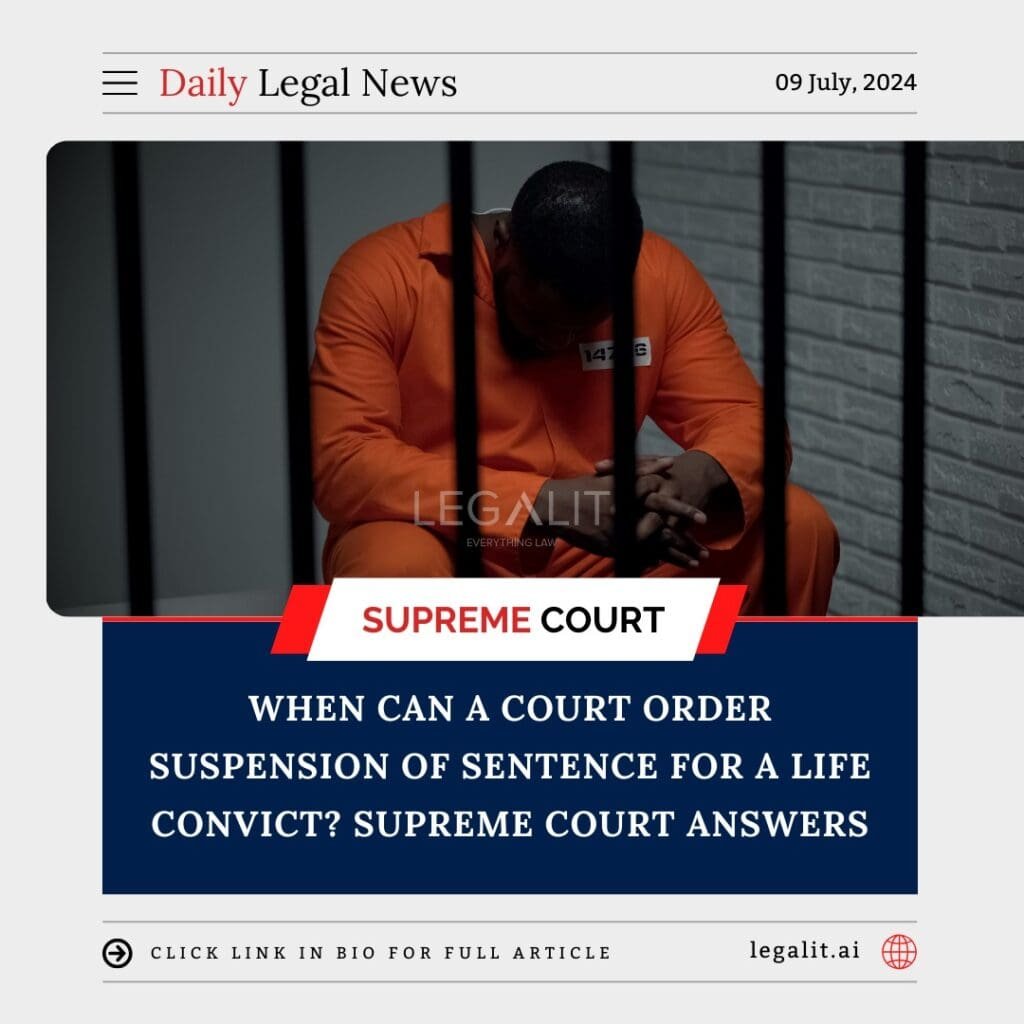
The Supreme Court of India has laid down guidelines regarding the suspension of sentences for life convicts, clarifying the circumstances under which such an order can be issued. This guidance is crucial for understanding the judicial discretion exercised in cases involving life imprisonment.
Legal Provisions and Judicial Discretion
- Section 389 of the CrPC: The primary legal provision governing the suspension of sentences is Section 389 of the Code of Criminal Procedure (CrPC), which allows an appellate court to suspend the execution of a sentence and grant bail to the convict during the pendency of an appeal.
- Judicial Precedents: The Supreme Court has relied on various precedents to outline the conditions under which a life convict’s sentence can be suspended. These include considerations of the convict’s health, the nature of the crime, the convict’s conduct in prison, and the probability of the appeal’s success.
Key Factors Considered by the Court
- Health Conditions: The court may consider the suspension of the sentence if the convict is suffering from severe or terminal health issues that cannot be adequately managed within the prison system.
- Inordinate Delay in Appeal Process: If there is an unreasonable delay in the hearing of the appeal, the court may opt to suspend the sentence, particularly if the delay is not attributable to the convict.
- Rehabilitation and Good Conduct: Evidence of the convict’s rehabilitation and good behavior in prison can influence the court’s decision. If the convict has shown significant signs of reform, this may weigh in favor of suspending the sentence.
- Humanitarian Grounds: In exceptional cases, humanitarian grounds such as the death of a family member or the need to take care of minor children might be considered.
- Nature and Gravity of the Offense: The court also assesses the nature and gravity of the offense. For instance, sentences for heinous crimes like terrorism or serial killings are less likely to be suspended compared to lesser offenses.
Notable Supreme Court Judgments
- Ankush Maruti Shinde & Ors vs State of Maharashtra: In this case, the Supreme Court highlighted the necessity of a balanced approach, weighing the convict’s right to appeal against the society’s interest in ensuring justice.
- Shaheen Welfare Association vs Union of India: This judgment discussed the principles for granting bail to life convicts, emphasizing that the suspension of sentence should not be granted lightly and must be supported by substantial reasons.
Conclusion
The suspension of a life convict’s sentence is a matter of judicial discretion guided by legal provisions, health and humanitarian considerations, delay in the judicial process, and the convict’s conduct. The Supreme Court’s guidelines ensure that such decisions are made with due regard to both the rights of the convict and the interests of justice.